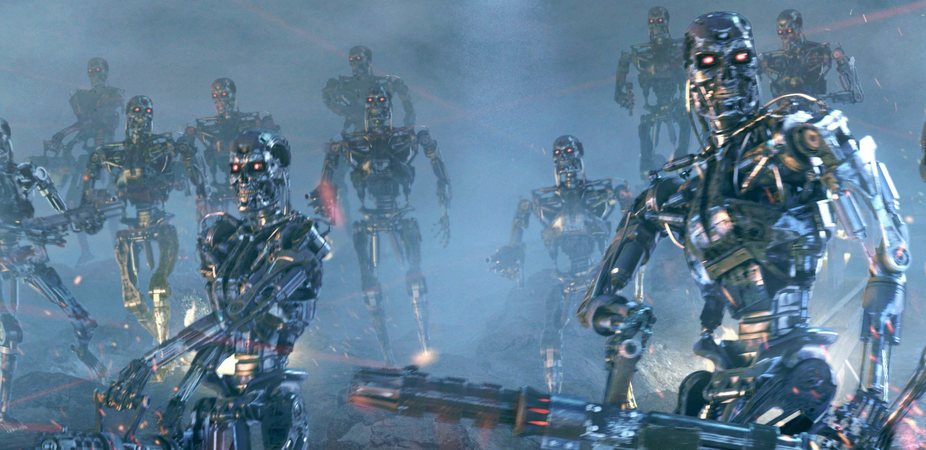The Robot Economy: Will Machines Take Your Job by 2025?

From driving cars to caring for the elderly, many of the tasks humans perform today will soon be taken over by robots and other forms of artificial intelligence, experts say. But a new report finds that people disagree about whether that future will be an optimistic or a pessimistic one.
Researchers surveyed more than 1,800 industry experts, scholars and other analysts about whether they think robots will take over more jobs than they create by the year 2025.
Half of the respondents said they think this will happen, while the other half said robotics technology will create more jobs than it takes away, according to the report, released today (Aug. 6) by the Pew Research Center and Elon University's Imagining the Internet Center, in Elon, North Carolina. [5 Reasons to Fear Robots]
"There was obviously no clear consensus at all among the folks surveyed," said Aaron Smith, a senior researcher at the Pew Research Center's Internet Project and lead author of the report. In addition, the responses didn't divide along professional lines —people from vastly different industries took similar viewpoints.
Techno-optimism
The majority of those surveyed agreed that robotic technologies such as driverless cars, robot caregivers and intelligent digital agents will be ubiquitous parts of daily life within a decade, but they diverged sharply on whether these developments will have a positive or negative outcome.
The 52 percent of respondents who took a positive or neutral view of the future of employment said that historically, technology has taken over some jobs, but has ultimately created more jobs than it has displaced.
Sign up for the Live Science daily newsletter now
Get the world’s most fascinating discoveries delivered straight to your inbox.
"Technology will continue to disrupt jobs, but more jobs seem likely to be created," said Jonathan Grudin, a principal researcher for Microsoft in Seattle.
These experts claim that humans will find other forms of work that require uniquely human abilities, especially ones that involve creativity, empathy, problem solving and critical judgment. In addition, the technical advances will relieve humans of some of their everyday drudgery, freeing them up to do more meaningful work.
Interestingly, as robots take over more mass production work, "a number of people predicted a return to small-scale, artisanal preindustrial modes of civilization,” Smith said. "We’ll be a nation of Etsy producers.” (Etsy is a website where people sell handmade or vintage items.)
But not everyone was sanguine about the future robot workforce.
Robot redundancy
The remaining 48 percent of respondents expressed concern about the growing infiltration of machines into the workforce.
"As just one aspect of the rise of robots and AI, widespread use of autonomous cars and trucks will be the immediate end of taxi drivers and truck drivers [the No. 1 occupation for men in the United States]," said Stowe Boyd, lead researcher at GigaOM, a media company and research firm based in San Francisco.
These experts argued that technology advances did away with many blue-collar jobs in the past, and now threaten to take over white-collar jobs. [The 6 Strangest Robots Ever Created]
"Automation is Voldemort — the terrifying force nobody is willing to name," said Jerry Michalski, founder of the think tank REX (the Relationship Economy eXpedition), in San Francisco. "As long as we need fiat currency to pay the rent or mortgage, humans will fall out of the system in droves as this shift takes place."
Although a small percentage of people will be very successful in the new robot economy, many more will be forced into lower-paying jobs in the service industry or, at worst, permanent unemployment, some experts say.
How to prepare?
Many of the survey respondents said they thought that the U.S. educational system isn't preparing children well enough for the future.
"Only the best-educated humans will compete with machines," said Howard Rheingold, an Internet sociologist and self-employed writer, consultant and educator. "And education systems in the U.S. and much of the rest of the world are still sitting students in rows and columns, teaching them to keep quiet and memorize what [they are told], preparing them for life in a 20th-century factory," Rheingold said.
In addition, political gridlock and economic shortsightedness may prevent the United States from handling the tough choices that robotic technology could bring. Events such as Occupy Wallstreet demonstrate a growing gap between rich and poor, and that gap will widen as human jobs become more scarce, some say.
On the surface, the divided opinions reflect different views on where robot technology and artificial intelligence are heading, Smith said. "But really, it was disagreement about how we as society are going to deal with it," he said.
Despite these differences, the respondents who saw a positive future for employment and those who saw a negative one agreed on a few things. "Both groups agreed that, as a society, we are in control of our own destiny on this," Smith said. "We have the ability to choose whether we have a good outcome or a bad outcome."
Follow Tanya Lewis on Twitter and Google+. Follow us @livescience, Facebook & Google+. Original article on Live Science.










